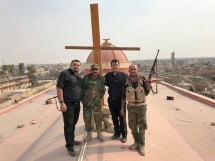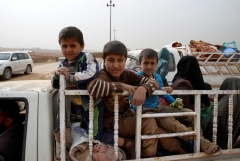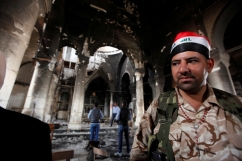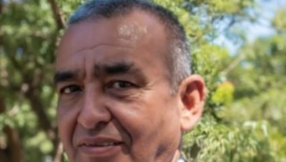Iraqi Christian migrants who have found refuge in Jordan are eagerly monitoring the news on the military campaign to liberate their home city Mosul, the biggest Iraqi city seized by the Islamic State (ISIS) in 2014. However, they are not really keen on returning to their home city.
Iraqi Anne Danyale al-Basi, for instance, shared to Al Jazeera how she had already given up on the idea of coming back to her house in Mosul, saying she does not want to risk the safety of her children.
"We will watch the news on Mosul until the end of our lives," she said. "But returning is impossible, I don't want my kids to ever have to go through another day like the one in 2014."
Basi were among the thousands of Iraqi Christians who were forced to leave their homes two years ago, when the ISIS started its occupation of Mosul, telling non-Muslims to flee the area or be killed.
"What kind of future can my children have if we go back to Iraq now?" the Christian mother said.
Her brother, Martin Daniel, has also abandoned the idea of returning to Mosul even if it is liberated from ISIS.
He believes the balance among religions in the city has already been irrevocably disturbed, and that the situation in Mosul will remain volatile even without the terror group there.
"Mosul was made up Sunni, Shiites, Yazidis and Christians. We were all raised together," he told Al Jazeera. "But we worry after Daesh [ISIL] leaves, there will be war for control among them all."
Dana Shahin, spokeswoman of Caritas Jordan which helped bring Iraqi Christians to the country, admitted that this pessimism about returning home to Mosul is prevalent among the refugees, more than half of whom once called the city that is now the centre of fighting in Iraq home.
"We hear the same answer, but it's a sad thing because we would like [to] preserve the presence of Christians in the Middle East," Shahin said. "But of course this is not easy for the families actually living in this situation."
In the face of dim chances of returning home, the Iraqi Christians have learned to move forward. Basi, for instance, has been granted asylum in Australia, and is set to leave Jordan in a few months to start a new life.
















